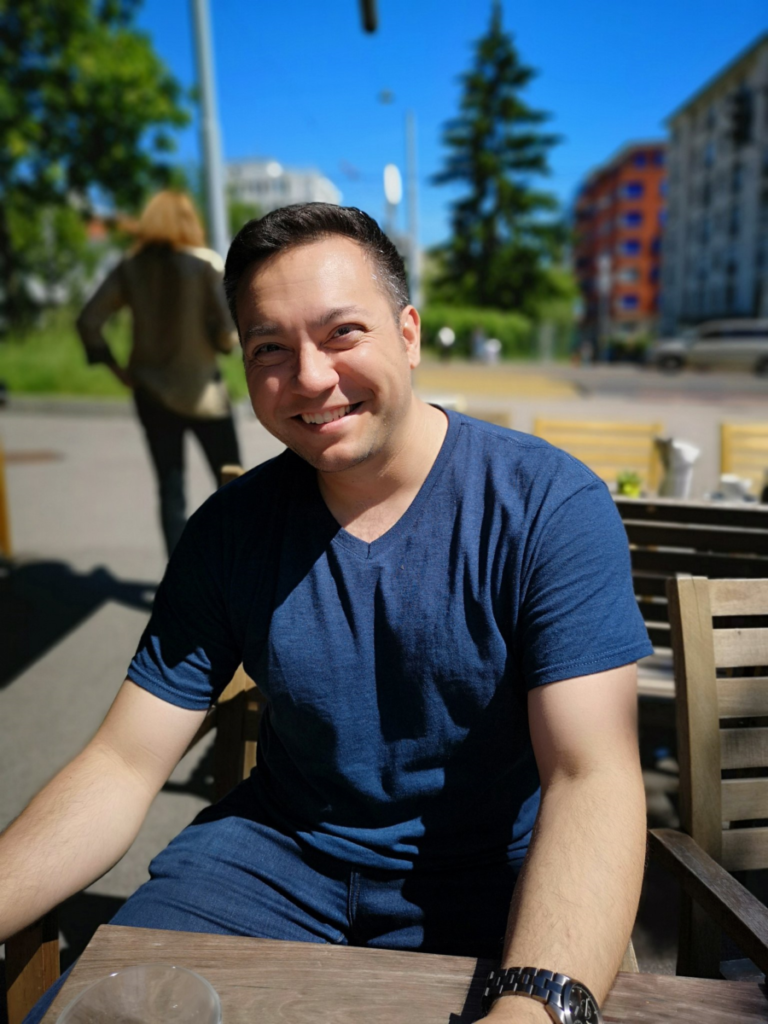Breaking Into – and Surviving In – the Global NGO Industry: Part 1
Category : PROspective
This is the first of a three part #PROspective series from alum Roice Fulton (GLEPI, 2014) on career paths with global NGOs and the creative application of epidemiology skills for public health practice. In Part 1, Roice shares his path from GLEPI student graduating at the height of the 2014 Ebola outbreak in West Africa, to a full-blown career at an unexpected employer. In Part 2, the focus turns toward the nuts and bolts of the global NGO industry and how to navigate your own entry post-graduation. Finally, Part 3 will cover the role of teamwork and leadership in public health work. We hope this series will help stimulate a creative approach to the post-graduate job hunt and reiterate the broad applicability of your epidemiology skillset. Enjoy!
Part 1
So, full disclosure: I’m not what you might consider a practicing epidemiologist.
It wasn’t for lack of trying. The GLEPI program granted me a fantastic epi skillset, coupled with a few publications in vaccine research, all in two short years. With my 2014 cohort graduating amid the West African Ebola outbreak, there was ample opportunity to put those epi skills to work. Like many of my classmates, I’d planned on heading straight into the field, and had lined up as many interviews as I could to put myself into the mix.
Yet as Rollins’ newly minted epis went their separate ways, I quickly found myself at a crossroads. Gavi, the global vaccine alliance, had offered a short-term contract based at their Geneva headquarters to provide analytical support for their upcoming fundraising conference.
I’d done fundraising work in the past, but nowhere near the amount Gavi was targeting – a massive $7.5 billion to keep their programs going through 2020. But Gavi just needed someone who could conduct a variety of analyses to help their donors understand the impact of their investments in vaccines. Surely, I thought, between all the spreadsheet jockeying and SAS coding over my two years at Rollins, there was a toolset I could gin up to help Gavi get the resources they needed.
And so, instead of joining my friends in the field, I embarked on a journey as an independent consultant for Gavi. One contract led to another, and I found myself working on everything from fundraising analyses, to tech innovation initiatives, to program monitoring and evaluation.
In my three years at Gavi, I never so much as glanced at a 2×2 table or an epi curve. I’m working now with the epidemiology team at CEPI, Gavi’s new sister organization. And although I’m managing an epi study, I’m still not doing any hardcore epi work. So why in the world did I agree to write for an epi career advice blog?
I decided to write because I believe the lessons I learned in adapting my skills to the needs of my employers might help those of you looking to apply your own newly-acquired epi skills in unique ways. And in my experience, this sort of adaptability seems better suited to what organizations like Gavi and CEPI are looking for in their new employees – particularly as they leave much of the epidemiological heavy lifting to groups like WHO and academic partners.
Frankly, if I couldn’t find a way to channel my epi (and other) skills into a non-epi work product, my career at Gavi would’ve been over before it started. Surviving the first few months would have been much more difficult without the gifts of an analytical background and enough tenacity to spend hours buried in spreadsheets working against hard deadlines. Likewise, succeeding at CEPI meant quickly learning the contours of a complex and ambitious scientific study in a region fraught with difficulties from poor infrastructure to political instability. The work can be intimidating, but the payoff is tremendous – both in personal satisfaction and in human impact.
It’s been more than five years since I first set foot in Geneva. Since then, I’ve gradually developed an understanding of the global NGO community that suggests a wealth of opportunities exist for aspiring young epidemiologists and public health practitioners.
As I figure out my own place in this community, my hope is to identify – and create – such opportunities for you all, just as my mentors did for me. More than ever, we need talented, passionate young thinkers to shepherd the global health and development community into the next era. And more than ever, we need a diversity of perspectives to inform how we can build strong, evidence-based global health interventions. This is where you come in.
You’ve already got a leg up on the competition. Each of you will leave Rollins with an analytical and lateral mindset holding immense potential value to the global NGO ecosystem. But the complex and changing needs of these organizations will rarely perfectly match up with your classwork – so we need to dig deeper to learn how to unlock that potential.
As we’ll explore in Part 2, standing out from the sea of candidates will depend both on how well you understand the global NGO you’d like to work for – and how you can demonstrate adaptability in, and compatibility with, a dynamic work environment.

Roice Fulton, MPH (GLEPI, 2014) is currently an independent consultant for the London- and Oslo-based Coalition for Epidemic Preparedness Innovations (CEPI), where he manages projects in CEPI’s epidemiology portfolio. Roice currently lives and works near Geneva, Switzerland.